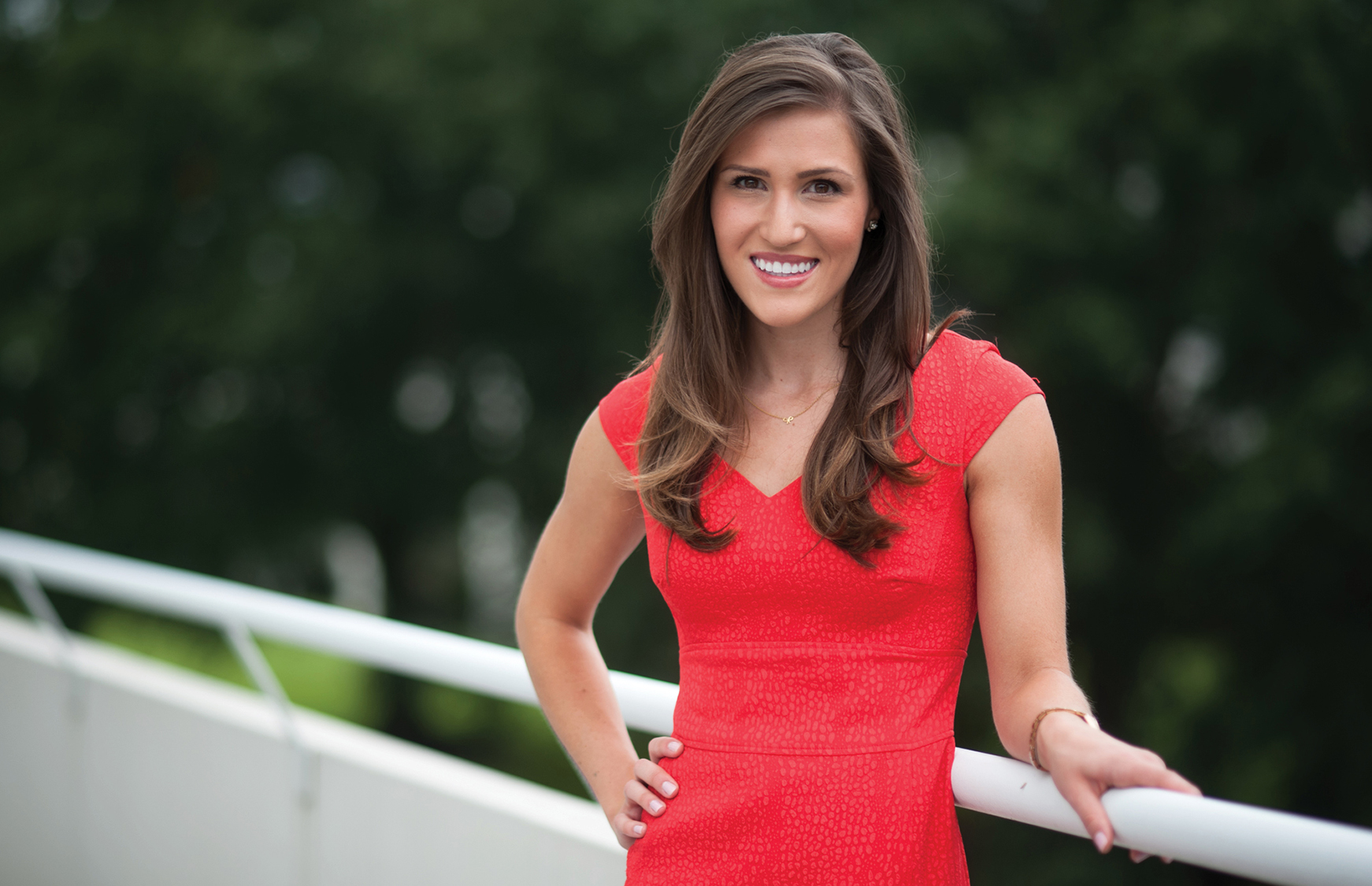Like so many great adventures, Lydia Froemelt’s career began with a dash of uncertainty and a road trip. After accepting a job fresh out of college with energy company, ConocoPhillips, the So Cal native had to quickly switch gears when the company split and placed her as a Clean Products Analyst at its resulting spinoff, Phillips 66.
Working for a company in its infancy meant having a less-than-specific job description, yet Lydia rolled with the punches, diving right in when tasks were daunting. Her naturally inquisitive nature and passion for new knowledge have been nothing but advantageous in her experience as an analyst, a position that requires learning new skills on the daily.
While self-sufficiency is key (she wrote her own “how-to” guide to help herself while learning the ropes!) Lydia also recognized the inherent value in seeking out a mentor within the company. This Contessa knows that if you want something, you’ve got to shake off the shyness and ask for it—and never be afraid to try.
EDITOR'S NOTE: Since this interview, Lydia is no longer working at Phillips 66.
Her Starting Point
Many people find the transition between college and “real life” a bit daunting. Can you tell us about your journey between the two? What was your first job post-college?
Transitioning to the real world was quite daunting. Besides moving from Los Angeles to Houston—a city in which I had no connections—I also decided to take a risk by accepting an uncertain job at an energy company, ConocoPhillips. ConocoPhillips had just recently announced that they were going to spin off their downstream refining business into a new company. Months after taking ConocoPhillips’s offer I found out I would be working for the new company, Phillips 66, as a Commercial Analyst on their commodity trade floor. When I arrived in Houston just months after the split, I felt assured that I had made the right decision. Many of the employees I had first met at ConocoPhillips brought their industry expertise to Phillips 66, and it was exciting working for a new company striving to prove itself in the marketplace.
I had a lot to learn about the energy industry in my first few months on the job, so I was grateful that Phillips 66 trained me through a three-month development program focusing on our company’s value chain, refining operations and commodity trading. The program helped kick start my career as an analyst and allowed me to network with many knowledgeable employees within the company.
What do you love most about working at Phillips 66? What is the company culture like?
The thing that attracted me to Phillips 66 was its commitment and respect for employees. Despite the company’s huge international portfolio of refineries, pipelines and terminals, its biggest assets are its employees. The company puts a huge focus on developing employees throughout their careers. In addition to the three-month concentrated development program I went through when I first joined Phillips 66, the company also offers an abundance of training classes, mentoring programs and employee networks.
I was specifically attracted to the Commercial organization within Phillips 66 because I thought it would be exciting to start my career off on the fast-paced commodity trade floor. The group is structured to foster communication and collaboration among employees. Instead of closed offices or cubicles, we all sit on long shared desks. Because we are so close by design, we are constantly working together. It feels natural to walk over and ask a coworker a question or pull up a chair for an impromptu meeting within our open floor plan. I loved the sense of teamwork coupled with the buzz of working on a trade floor.
Being an analyst is a dynamic and interesting career.When did you feel like this was the right path for you?
I graduated with a degree in Industrial & Systems Engineering, which is one of the most comprehensive and broad engineering degrees offered. My educational background exposed me to many disciplines within engineering, but I couldn’t pick just one to focus on. I knew I wanted a job that allowed me to see many different facets of a company’s operations.
Being an analyst allowed me to gain the breadth of knowledge I was looking for. Throughout the projects I’ve worked on, I’ve also realized that being an analyst has given me the opportunity to take time to explore different career paths. I’ve met so many employees from the different departments at my company who have given me insight into how their careers have developed over time.
What first steps did you take in order to establish yourself as a pro? How did past jobs lead you to this point in your career?
“Pro” may be a bit of an overstatement as I am new in my career and constantly learning in my job. I did, however, finally master the confidence needed in my analyst job. I’ve learned to ask to be involved in big projects and to not shy away from opportunities that I don’t initially feel prepared for. Being a “pro” analyst doesn’t mean you have to be knowledgeable about every topic, but it does mean you know how to explore unfamiliar environments, identify challenges and gather the right resources to propose solutions.
Learning how to dive into unknown territory and develop a project can be intimidating, but thankfully my past work experience helped prepare me to be an analyst. During a capstone course in college, I worked with the Industrial Engineering team at Disneyland Resorts. Although I was tempted to whip out my stopwatch and start conducting a time study on their retail distribution warehouse (so nerdy, I know), I soon realized that I needed to take a step back and really assess the problem statement. I took the time to understand Disney’s corporate culture and strategic direction and then aligned my project to fit those goals. I try to use this principle—of aligning my project scope with corporate goals—to help guide my daily work and how I go about developing projects.
Her Big Break
Although many people have heard the job title Analyst, perhaps just a few know exactly what the position entails. Could you give us a brief overview of your role and what you do?
My job title is quite vague—on purpose! As an analyst in the Commercial Group, I’ve had many different roles and responsibilities based on the needs of the business. The Commercial Group is responsible for procuring and selling commodities like crude oil, gasoline, diesel and natural gas liquids in order to supply Phillips 66’s refineries and distribute product after it has been produced. I help conduct analysis on many areas of this supply chain and look for new opportunities to optimize our business. I take on many short-term projects, such as creating presentations about supply constraints, in between more routine tasks like maintaining financial models.
The common threads within my role are modeling data, understanding logistics, analyzing pricing and researching new market opportunities. Recently because of business need, I helped fill the role of the gasoline hedge desk, which involves managing risk and trade exposure on the New York Mercantile Exchange. This job has more structured responsibilities and focuses directly on financial trade data. Overall, the broad area of responsibility that falls under the title of Analyst has allowed me to learn about many different areas within our Commercial supply chain and help fill the gaps in our business as they arise.
Was there a particular moment when you felt like your career was turning the corner towards success?
During my role as a Commercial Analyst in the Crude Supply group, I had the opportunity to contribute to a steering team of managers who were tasked with increasing advantaged crude oil supply to our refineries. This assignment helped me to move beyond the day-to-day data crunching in my analyst job and
see a more tactical level of management as our team developed specific objectives and projects around the topic of advantaged crude.
My real breakthrough, however, was when I was invited to attend a meeting with our Executive Leadership Team to see some of my analyst work presented and discussed by the CEO and Senior Vice Presidents. Phillips 66 is no small company—in fact, last year we were ranked #4 on the Fortune 500—so, of course, I jumped at the opportunity to gain exposure from executives. In addition to getting a rare look at how my work was received by senior management, the meeting also offered me insight into the strategic discussions, such as investor perceptions and government regulation, among my company’s leadership team.
If we had the chance to peek at your schedule, what would an average day look like?
Last fall, I took on the responsibility of running one of the hedge desks on the trade floor, which means I get into the office extra early before the market opens to start hedging the trader’s positions and catch up on industry news. Throughout the day, I’ll then have many informal and formal meetings with coworkers from around the company to work on ongoing analyst projects.
If I have time, I’ll try to sneak in a quick workout on my lunch break at our on-site gym (a huge luxury!) before getting back to the trade floor to check on our hedge positions. After work, you’ll find me rushing off to volunteer in my community with the Junior League of Houston or catching up with friends over happy hour.
What tools do you use to stay current in your ever-changing industry?
One of the most challenging parts of my job is staying up to date with such a dynamic industry and market. In the mornings, I read industry reports over coffee to catch up on energy news. Throughout the day, I’ll also scan alerts on our data feeds for recent events, such as a refinery outage or new rulings from the EPA. But with so many different factors driving the commodity markets, the best way to truly understand what’s happening in the market is to talk to other employees on our trade floor. Once a week, our international gasoline-trading group gathers via teleconference to share news and opinions on the market. It’s always interesting to hear the London and Singapore offices’ global perspective!
Can you tell us about a recent challenge you had at work and how you dealt with it? How do you avoid getting off track in what we imagine to be a fast paced work environment?
Last year, when I was asked to take on the role of running the gasoline hedge desk, I was really anxious about the job. The hedge desk had a bad stigma because it’s a high-pressure job where a little mistake can cost a lot of money. Running the hedge desk was a dreaded badge of service on the trade floor. To make matters worse, I had no background in risk management, finance or trading. But instead of giving into the pressure of the job, I decided to utilize the skills I did have.
My engineering education made me a self-taught learner, so I dove in head first to the hedge desk and wrote my own “how-to manual.” I studied diligently, took explicit notes, asked a ton of questions and wasn’t afraid to admit when I didn’t understand trading lingo. My fervent preparation allowed me to be trained in record time and ultimately succeed in an area outside my expertise. The responsibilities on the hedge desk further expanded my knowledge of Phillips 66’s business operations and reaffirmed my confidence to take on challenges I didn’t initially feel prepared for.
It’s especially challenging balancing the hedge desk responsibilities with my analyst role. I’ve found that it’s extremely important to prioritize my day. Some tasks on the hedge desk have deadlines throughout the day based on the New York Mercantile Exchange’s schedule and, therefore, receive the highest priority. With my analyst work, I try to mirror my company’s goals and rank projects based on how they will contribute to my work group’s strategies.
Her Perspective
What skills are essential to working as an analyst? Do you think having an industry niche is important?
Since a large portion of my job is self-directed, having initiative is key. When I first started at Phillips 66 after the company split, the analyst position was quite undefined and I had to shape the boundaries and scope of my own job. I had to be resourceful and a self-starter, finding meaningful projects to develop.
At this stage of my career, I don’t think it’s necessary to have a focused industry niche. I’ve had freedom thus far to explore many different areas and apply a broad knowledge of supply chain operations and market fundamentals to my work. I do believe, however, that as I move to the next stages of my career I will start to specialize in more focused areas.
Translating passion into a career is tough. What advice would you give to women trying to figure this out?
Look for opportunities that will help expose you to many different areas of expertise; acquiring a varied skillset will not only give you a solid foundation to grow upon but also will help you figure out what truly interests you. Learn from other employees who have similar interests as you and see how they have pursued their passions in their careers. No matter what job you’re in, I think it’s important to find an advocate at your company to help mentor and guide you in your career. An advocate with experience in your industry/company can help you attain your professional goals, and also may challenge you to consider opportunities that will benefit your career in the long run.
What, if anything, do you wish you had known before you entered this field?
Day one, I thought I was expected to know everything about the oil industry to be an analyst. It was a huge relief to discover that my job didn’t require me to be an expert on everything. I’m glad to now know that my job is about constant learning and collaboration, bringing together the right people and having the knowledge to solve a problem.
And finally, what do you wake up looking forward to? What’s next for your career?
Since my industry is so dynamic, I wake up every morning looking forward to seeing new challenges evolve in the market. I enjoy learning from my coworkers as we partner together to brainstorm creative solutions and ideas.
So far, I’ve really enjoyed the process of acquiring new skills and knowledge in my analyst role. I’ve found many different areas that interest me that I’d like to explore further down the road in more specialized roles. Most importantly, I’m looking forward to taking on more responsibilities, learning how to manage large complex teams and making impactful decisions for my company.
You May Also Like
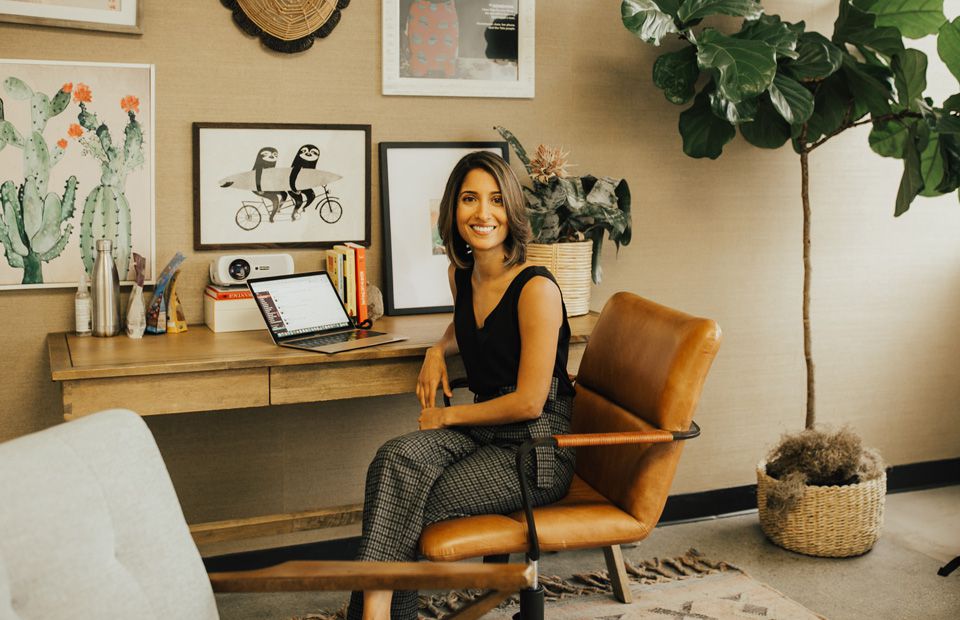
Technology
A Tech Founder on Why Being an Outsider Is a Strength
"I actually think most successful founders are rebels, of a sort. We’re trying to do new things and take on entrenched systems or ways of thinking. What makes me and our company different is that we’re outsiders."

Technology
Omoju Miller—Tech Veteran, Leader, and Volunteer Advisor to the Obama Administration—on The Crucial Role of Creativity in the Tech Industry
"If you are in an environment where you feel marginalized, leave. Don’t try to change it. Go and look for a place that sees you and lets you be you."
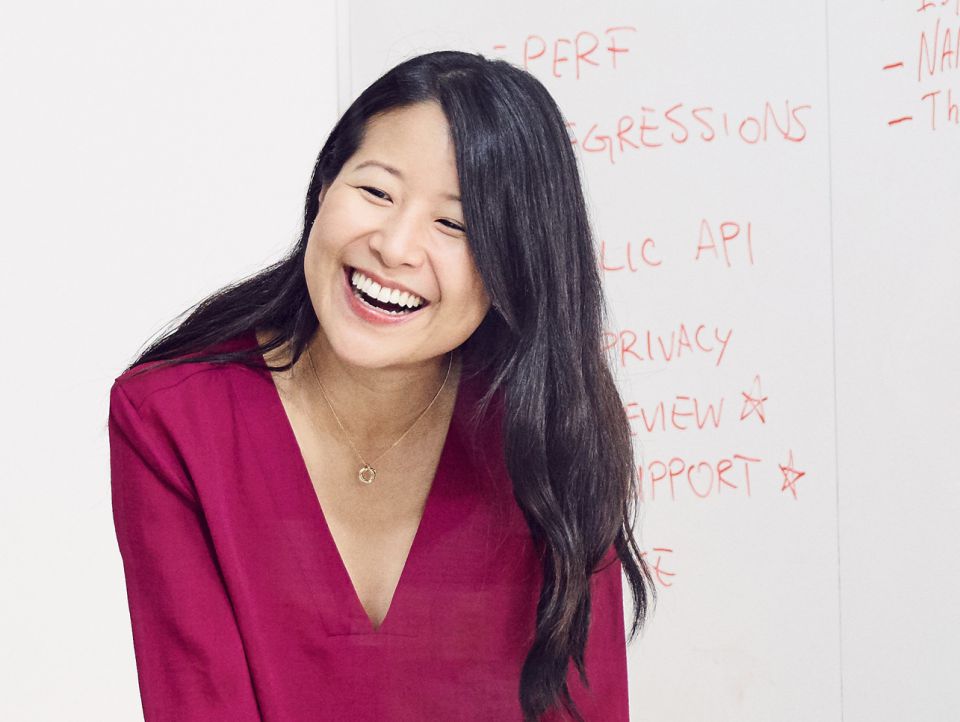
Technology
Sharing Stories as a Software Engineer
We sat down with Apple software engineer Emilie to learn about her day-to-day working at Apple along with what it takes to run the perfect meeting and her favorite ways to unwind.
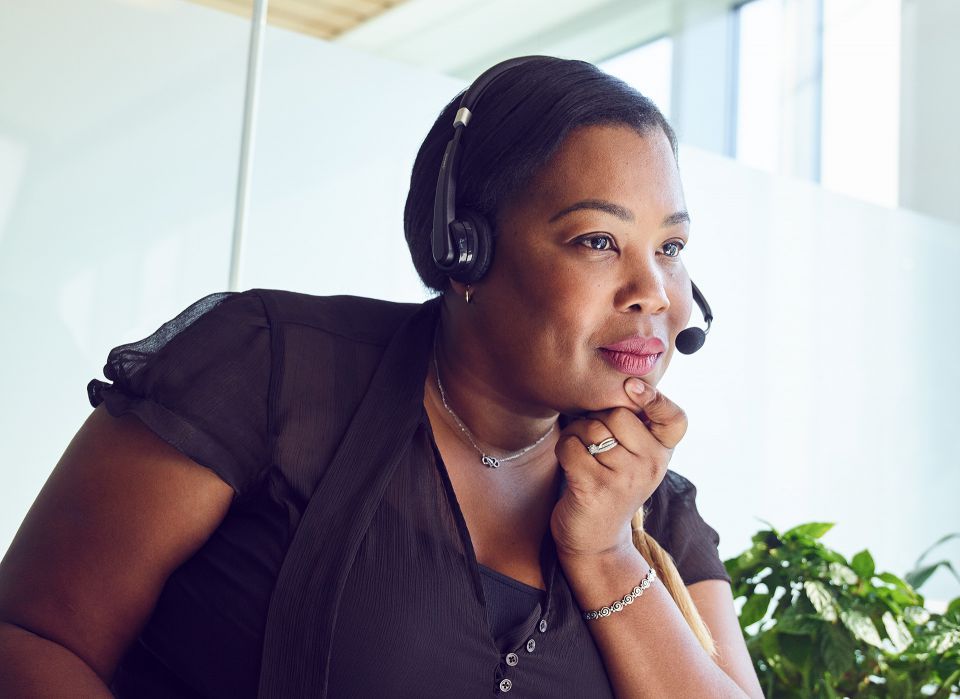
Technology
Creating Impact with Apple
We sat down with Apple's Senior Developer Partner Relations Advisor, Cris, to learn about what it takes to create a lasting impact within a large company. She shares a typical day in the life, her favorite book recommendations, and her top four tips to running a meeting.
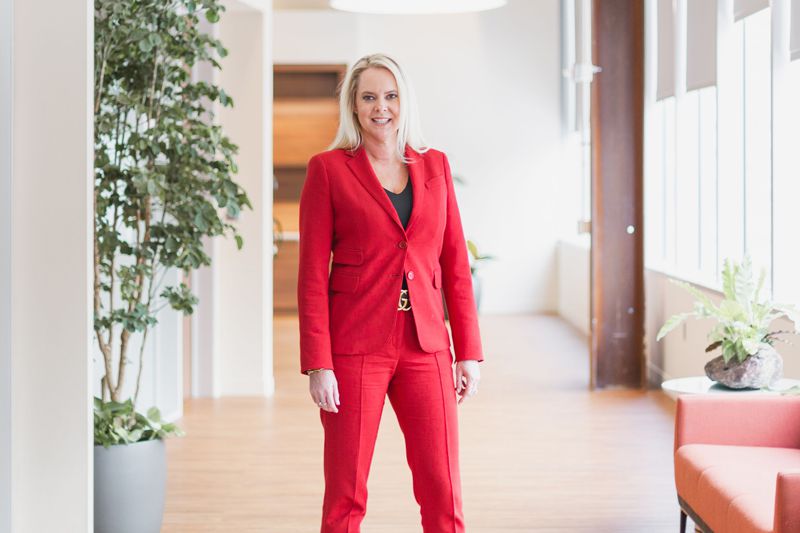
Technology
Salesforce’s Senior Vice President of Sales on Unconscious Bias, Failure, and Innovative Leadership
"Do not be afraid to fail, just bring your best self to the table."
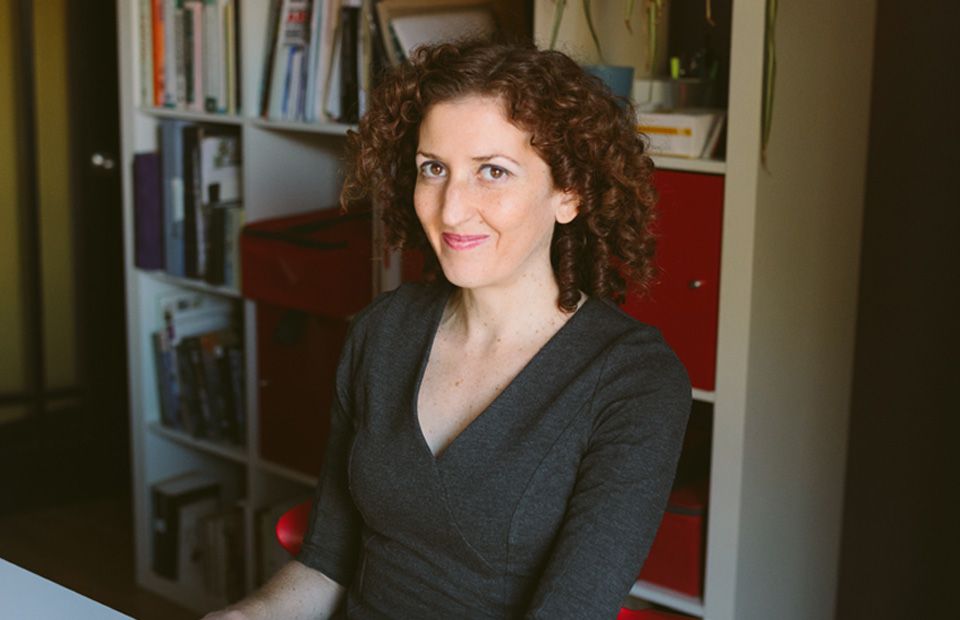
Technology
A Director of Engineering on Tech + Leadership
"I don’t believe in 'having it all'. If you spend more time on one thing, then you spend less time on another thing. All we can do is make choices on how to spend our time."
Get the Best Career Advice Delivered To Your Inbox
Join our newsletter to stay in the loop.
